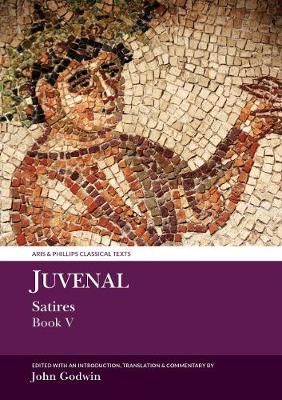Juvenal's fifth and final book of Satires consists of three complete poems and one fragment and continues and completes his satirical assessment of the Rome of the early second century AD. The poems treat us to a scandalised exposure of folly and vice and also the voice of sweet reason as the poet advises us how to live our lives-all delivered in the hugely entertaining tones of a great master of the Latin language. There is here laugh-out-loud humour, razor-sharp descriptions of the sights, sounds and smells of ancient Rome and also some of the most moving lines of this extraordinary poet. All four poems promote the value of human life and the need to accept our lives without worshipping the false gods of money, power or superstition. Satires 13 and 14 both deal with our need to use money without being enslaved by it, Satire 15 is an astonishing tour de force description of the cannibalism perpetrated in a vicious war in Egypt, while the final unfinished poem in the collection looks from a worm's-eye view at the advantages enjoyed by men enlisted in the Praetorian guard.The Introduction sets Juvenal in the history of Roman Satire, explores the style of the poems and also asks how far they can be read as in any sense serious, given the ironic pose adopted by the satirist. The text is accompanied by a literal English translation and the commentary (which is keyed to important words in the translation and aims to be accessible to readers with little or no Latin) seeks to explain both the factual background to the poems and also the literary qualities which make this poetry exciting and moving to a modern audience.
- ISBN13 9781789622188
- Publish Date 1 October 2020
- Publish Status Active
- Publish Country GB
- Imprint Liverpool University Press
- Format Paperback
- Pages 390
- Language English
